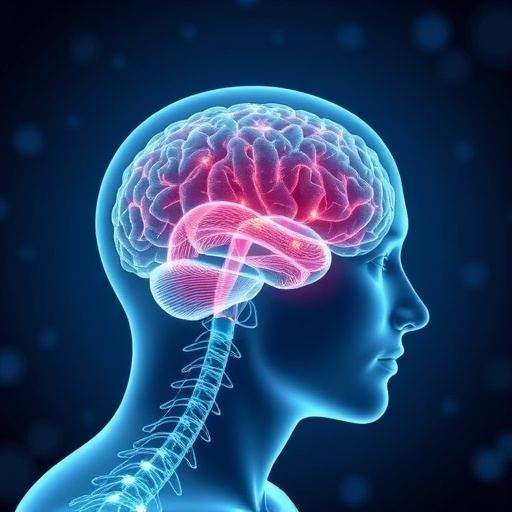In a pioneering effort to advance brain health awareness and dementia care within the realm of primary healthcare, the Gerontological Society of America (GSA) has unveiled an insightful report titled “Understanding Breakthroughs in Brain Health: Top 10 Articles of 2024.” This comprehensive compilation aims to equip clinicians, especially primary care providers, with distilled knowledge from cutting-edge research published during the year. The report is expertly curated to enhance practitioners’ ability to diagnose, manage, and implement novel strategies for dementia care, thereby addressing a pressing need in an aging population worldwide.
The significance of this report lies not only in its timing but also in its scope, as it recognizes the evolving landscape of dementia diagnosis and treatment. Unlike specialty clinics or research facilities, primary care settings serve as the frontline for most patients experiencing cognitive decline. In fact, statistics reveal that over 85% of Medicare beneficiaries diagnosed with dementia receive their diagnosis from primary care providers or other non-specialist clinicians, underscoring the critical role these professionals play in brain health management.
The authoritative selection committee overseeing this report included notable experts such as Dr. Soo Borson from the University of Southern California and Dr. Barak Gaster from the University of Washington. Their collective expertise guided a meticulous evaluation process that favored articles with direct applicability to everyday clinical practice. The advisory board also incorporated diverse perspectives from the University of Wisconsin and the University of California, Los Angeles, ensuring that the curated findings resonate across multiple healthcare settings.
Central to this endeavor is the recognition of recent technological and scientific breakthroughs in earlier detection of dementia. Emerging biomarker research, for instance, offers promising avenues whereby biological indicators—ranging from neuroimaging to cerebrospinal fluid proteins—can inform more accurate and timely diagnoses. Integrating these findings into primary care paradigms challenges traditional cognitive assessment methodologies, urging clinicians to adopt a more nuanced understanding of disease progression at preclinical or mild cognitive impairment stages.
Furthermore, the compilation emphasizes the necessity of unbiased cognitive assessment tools designed to mitigate cultural, educational, and socioeconomic confounders that often skew traditional testing outcomes. The use of such rigorous and equitable instruments enables primary care providers to better differentiate between normal age-related changes and pathological decline, which is essential for initiating appropriate interventions. This advancement holds implications for reducing disparities and improving diagnostic accuracy across diverse patient populations.
In addition to diagnostic innovation, the report highlights emerging prevention strategies that could shift the clinical emphasis from reactive care toward proactive brain health maintenance. Evidence-based lifestyle modifications, including optimized cardiovascular health, physical activity, cognitive engagement, and nutrition, figure prominently as actionable tactics within the primary prevention framework. These approaches not only hold the potential to delay onset but also improve long-term functional outcomes for those at risk.
Treatment paradigms have also evolved with the advent of pharmacological agents and non-pharmacological interventions that can slow dementia progression. The findings compiled in the report shed light on newly approved or investigational therapeutics that target underlying pathophysiological mechanisms, such as amyloid-beta deposition or tau pathology. In primary care contexts, understanding the indications, eligibility criteria, and monitoring requirements for these treatments is paramount for integrating them safely and effectively into patient management plans.
Beyond patient-centered care, the neurological and psychosocial complexities of dementia necessitate comprehensive support systems for caregivers. The selected articles explore innovative approaches to bolster caregiver resilience and reduce burnout, recognizing that caregivers’ well-being directly influences patient outcomes. Interventions such as education, counseling, and community resource navigation are underscored as vital components of holistic dementia care models.
Importantly, the report advocates for the establishment and adoption of meaningful clinical outcomes that transcend mere cognitive scores. Quality of life, functional independence, and caregiver burden are presented as essential metrics to guide therapeutic decisions and policy-making. This paradigm shift promotes patient-centered care that aligns medical goals with individual preferences and values, ultimately enhancing dignity and autonomy for those living with dementia.
The release of this report marks the inception of the “Top 10” series within GSA’s Insights & Implications in Gerontology publication platform, signaling a dedicated commitment to translating complex gerontological research into practical knowledge for frontline clinicians. The initiative recognizes that bridging the gap between scientific discovery and clinical application is critical in achieving tangible improvements in population brain health.
Underlying this ambitious publication is support from Lilly, which underscores a broader trend of industry-academic partnerships aiming to accelerate innovation in brain health therapeutics and diagnostics. Such collaborations are instrumental in ensuring that resource-intensive research efforts translate into real-world benefits, especially in underserved primary care environments.
As the global demographic shift inevitably results in a growing prevalence of dementia and age-related cognitive disorders, the knowledge synthesized in this comprehensive report offers hope and direction. Empowering primary care providers with evidence-based tools and insights not only enhances early detection and management but also catalyzes a systemic transformation toward healthier aging trajectories.
In summation, the Gerontological Society of America’s new “Top 10 Articles of 2024” report embodies a milestone in gerontological research dissemination. By focusing on pragmatic, scientific, and clinical innovations tailored for primary care, it equips the medical community to confront one of the most formidable healthcare challenges of our time with renewed expertise and compassion.
Subject of Research: Breakthroughs in Brain Health and Dementia Care in Primary Healthcare
Article Title: Understanding Breakthroughs in Brain Health: Top 10 Articles of 2024
News Publication Date: 2024
Web References: https://gsaenrich.geron.org/kaer-toolkit-for-brain-health
Keywords: Gerontology, brain health, dementia, primary care, cognitive assessment, biomarkers, dementia prevention, caregiver support, aging research
Tags: aging population healthcarebrain health awarenessbreakthroughs in dementia treatmentclinician education on brain healthcognitive decline managementdementia care strategiesgerontological research updateshealthcare for seniorsinterdisciplinary approaches to dementiaMedicare dementia diagnosisnon-specialist dementia careprimary care provider resources





